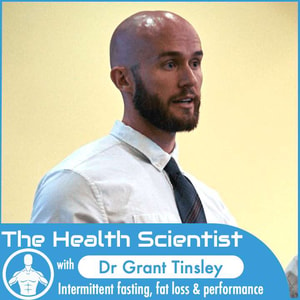Ep.50 Grant Tinsley: Intermittent fasting, fat loss and performance

Dr. Grant Tinsley is an Assistant Professor and the Director of the Energy Balance & Body Composition Laboratory at Texas Tech University. The major research interests of his laboratory are the critical evaluation of body composition assessment techniques, the influence of intermittent fasting on health and physical performance, and sports nutrition strategies to improve performance and body composition.
In this episode we cover:
- Grant's background and how he got into researching body composition and intermittent fasting
- What were the general recommendations on meal frequency for fat loss and performance before IF became popular?
- How is body composition analysed and what are the limitations with most methods?
- What are some of the most frequently used techniques for measuring body fat and muscle mass and how do they work?
- Why might a researcher want to use a combination of techniques for measuring body composition?
- What is IF, what are the different types and why does that make interpreting research difficult?
- An explanation of periodic fasting, alternate-day fasting and time-restricted feeding
- Why focusing on "when" you eat may make a diet more appealing thant "what" you eat.
- What are some of the possible benefits of IF and are they all weight-loss dependent?
- Why IF may not be useful for everyone?
- What are some of the considerations for IF in athletic populations?
- Why would a higher meal frequency potentially be more beneficial for athletes or people trying to gain muscle?
- What has Grant's own research shown on the effects of IF while doing resistance exercise?
- What are the issues with trying to record people's food intake during these free-living trials?
- Why might protein play such an important role in the effects of IF while resistance training?
- What has Grant's research shown on the effects of IF in cyclists?
- How can body composition changes translate to improved performance?
- Why we need to be much more conservative with changes in meal frequency when working with elite athletes?
- Could changes in hormones like IGF1or testosterone have important effects in the long term?
